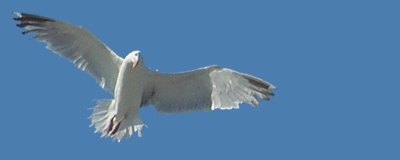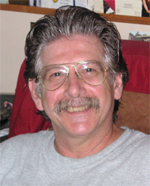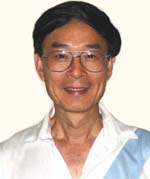|
|
 |
 |

W.D. Ehrhart
W.D. 俄哈特
  W.D. Ehrhart (1948-)fought in Vietnam as an enlisted Marine. He lives in Philadelphia with his wife Anne and daughter Leela, and teaches English and history at the Haverford School. His most recent collection of poems is Sleeping with the Dead (Adastra Press, 2006). W.D. Ehrhart (1948-)fought in Vietnam as an enlisted Marine. He lives in Philadelphia with his wife Anne and daughter Leela, and teaches English and history at the Haverford School. His most recent collection of poems is Sleeping with the Dead (Adastra Press, 2006).
W.D. 俄哈特(1948- )曾参加美国海军陆战队在越南打过仗,现居费城,在学校里教英文及历史。他最近的著作是2006年由Adastra Press出版的诗集《与死者同眠》。
|

|

译者
Translator
William Marr (Fei Ma)
非马
 
诗人非马出版有十四本诗集 (除《秋窗 》是英文外,其它都是中文) 以及几本翻译,包括双语诗选《让盛宴开始──我喜爱的英文诗》。他还编选出版了几本台湾及中国现代诗选。他是前任伊利诺州诗人协会的会长,现居芝加哥。
William Marr (Fei Ma) is the author of fourteen books of poetry (all in his native Chinese language except Autumn Window which is in English) and several books of translations, including the bilingual anthology Let the Feast Begin—My Favorite English Poems. He has also edited and published several anthologies of contemporary Taiwanese and Chinese poetry. A longtime resident of Chicago, he served from 1993 to 1995 as the president of the Illinois State Poetry Society.
|
 |
The Bodies Beneath the Table
Hue City, 1968
(or was it Fallujah,
Stalingrad, or Ur?)
|
 |
桌子底下的尸体
顺化,1968
(或 Fallujah,
史达林格勒, 或 Ur?)
|
The bodies beneath the table
had been lying there for days.
Long enough to obliterate their faces,
the nature of their wounds.
Or maybe whatever killed them
ruined their faces, too.
Impossible now to tell.
Only the putrefying bodies
bloated like Macy's Parade balloons,
only unrecognizable lumps on
shoulders where heads should be.
The two of them seemed to be a couple:
husband and wife, lovers perhaps,
maybe brother and sister—who
could tell—but they'd pulled the table
into a corner away from the windows,
their only protection against
the fighting raging around them,
crawled beneath it—the table, I mean—
half sitting, bent at the waist,
close together, terrified, almost
certainly terrified, nothing but noise,
only each other, only each other,
any moment their last.
All these years I've wondered
how they died. Who were they.
Who remembers.
(Note: The poem was first published in THE
DEADLY WRITER'S PATROL, Issue 6,2008.)
|
|
桌子底下的尸体
已在那里躺了好几天。
那么长久他们的脸庞,
他们的伤口都已湮没。
或许那将他们杀死的
也毁损了他们的脸庞。
此刻已无法断定。
只有腐烂的尸体
浮肿如梅西百货公司的游行气球,
只有肩膀上不可辨识的肉块仍在
头颅该在的地方。
这两人看起来是一对:
夫妻,或许是情侣,
或兄妹—谁说得准—但他们把桌子
拖到一个远离窗户的角落里,
对在他们四周剧烈进行的战斗,
他们唯一的防御
是爬到它底下——我是指桌子——
半坐,弓着腰,
紧紧靠着,吓得要命,几乎是
吓得要命,除了爆响没有别的,
只有彼此,只有彼此,
随时都可能是他们的最后一刻。
这些年来我一直在猜
他们是如何死的。他们是谁。
谁记得。
(注:该诗英文原作发表于《致命的
作家巡逻队》2008年第六期。)
|
 |
Guns |
 |
大炮 |
Again we pass that field
green artillery piece squatting
by the Legion Post on Chelten Avenue,
its ugly little pointed snout
ranged against my daughter's school.
"Did you ever use a gun
like that?" my daughter asks,
and I say, "No, but others did.
I used a smaller gun. A rifle."
She knows I've been to war.
"That's dumb," she says,
and I say, "Yes," and nod
because it was, and nod again
because she doesn't know.
How do you tell a four-year-old
what steel can do to flesh?
How vivid do you dare to get?
How explain a world where men
kill other men deliberately
and call it love of country?
Just eighteen, I killed
a ten-year-old. I didn't know.
he spins across the marketplace
all shattered chest, all eyes and arms.
Do I tell her that? Not yet,
though one day I will have
no choice except to tell her
or to send her into the world
wide-eyed and ignorant.
The boy spins across the years
till he lands in a heap
in another war in another place
where yet another generation
is rudely about to discover
what their fathers never told them.
|
|
我们又经过那野地
绿色的大炮蹲踞
在乔腾街上退伍军人协会的旁边,
它丑陋的小鼻头
直直对准我女儿的学校。
“你用过这样的
大炮吗?”我女儿问,
我说,“不,但别人用过。
我用一支较小的。一支步枪。”
她知道我打过仗。
“真蠢,”她说,
而我说,“是的,”点了点头
因为它是蠢,又点了点头
因为她不知道。
你如何告诉一个四岁的孩子
钢铁对血肉之躯能干出些什么来?
你敢绘声绘色描述吗?
如何解释一批人故意去杀另一批人
而把它称之为爱国的这个世界?
才十八岁,我便杀了
一个十岁的小孩。我当时并不知道。
他飞旋过市场
支离破碎的胸膛,眼睛与手臂。
我该告诉她吗?还不,
虽然有一天我将不得不告诉她
没有任何选择
不然就把她送进世界里
眼睛睁得大大天真无知。
那孩子在岁月里飞旋
直到他坠落在一个隆堆上
在另一个战争在另一个地方
那里另一个世代的人
将猛然发现
他们的父辈不曾告诉他们的东西。
|
 |
Star Light, Star Bright |
 |
小星星,亮晶晶 |
Under stars in late October cold
you asked, if stars are suns,
why is ours much bigger than the rest.
I said, because they're far away.
As far away as Grammy's house, you asked.
Farther still, I said, much farther.
Where is Grammy now, you asked.
Her body's in the ground, I said,
but maybe what she really was
is up there somewhere shining down
like starlight you and I can feel
all around us on a night like this.
You stood in silence for awhile,
gazing up, one thoughtful hand
resting lightly on my shoulder,
one stretched out and turned palm up
as if to catch the starlight.
Then you said, almost singing,
what a pretty feeling
to be a little star,
white, and beautiful.
I could feel the whole heart of you
lifting dreams beyond the reach
of earthbound limitations and I
love you more than you will know
until I'm starlight and you understand
how each of us needs little stars
to lift our dreams beyond ourselves,
and I was hers, and you were mine.
|
|
十月末凛冽的夜星下
你问,如果星星是太阳,
为什么我们的比其它的大得多。
我说,因为它们很远。
象祖母的屋子那么远吗,你问。
还要远,我说,更远。
祖母现在哪里,你问。
她的身体在地下,我说,
但也许真正的她
是在那上面某个地方照耀下来
象我们在这样的晚上能感到的
围绕着我们的星光。
你静静地站了一会儿,
向上凝视,一只若有所思的手
轻轻搭在我的肩膀上,
另一只伸出并把掌心向天
有如想抓住星光。
接着你说,几乎是歌唱,
多好的感觉
成为一颗小星星,
洁白,美丽。
我能感到你整个心
把梦举到尘世局限
所够不到的高度而我
爱你比你知道的要多得多
直到我成为星光而你了解到
我们每个人都多么需要小星星
来把我们的梦举到超出我们自己,
而我是她的,而你是我的。
|
|
|







